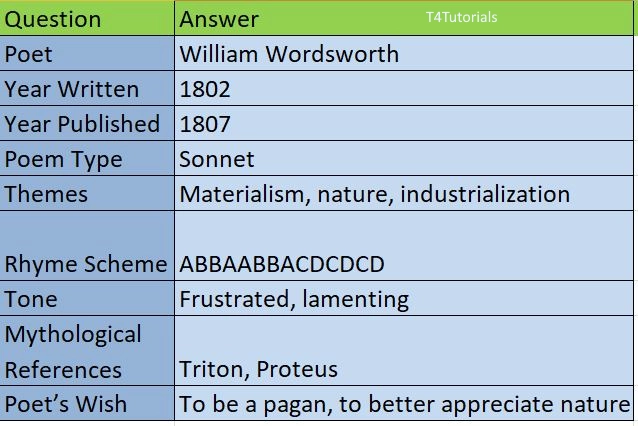Summary:
William Wordsworth’s sonnet “The World Is Too Much with Us” expresses frustration with humanity’s increasing detachment from nature due to materialism and industrialization. The poet laments that people are consumed by wealth and progress, losing their deep spiritual and emotional connection with the natural world. He contrasts this loss with the beauty of nature, referencing the sea, the moon, and mythological figures like Triton and Proteus to highlight what modern society fails to appreciate. In his desperation, Wordsworth wishes he were a pagan, believing that at least ancient religions embraced a reverence for nature. The poem conveys a tone of anger and sorrow over the destruction of this essential bond between humans and the environment.| Question | Answer |
| Poet | William Wordsworth |
| Year Written | 1802 |
| Year Published | 1807 |
| Poem Type | Sonnet |
| Themes | Materialism, nature, industrialization |
| Rhyme Scheme | ABBAABBACDCDCD |
| Tone | Frustrated, lamenting |
| Mythological References | Triton, Proteus |
| Poet’s Wish | To be a pagan, to better appreciate nature |
8
Score: 0
Attempted: 0/8
Subscribe
